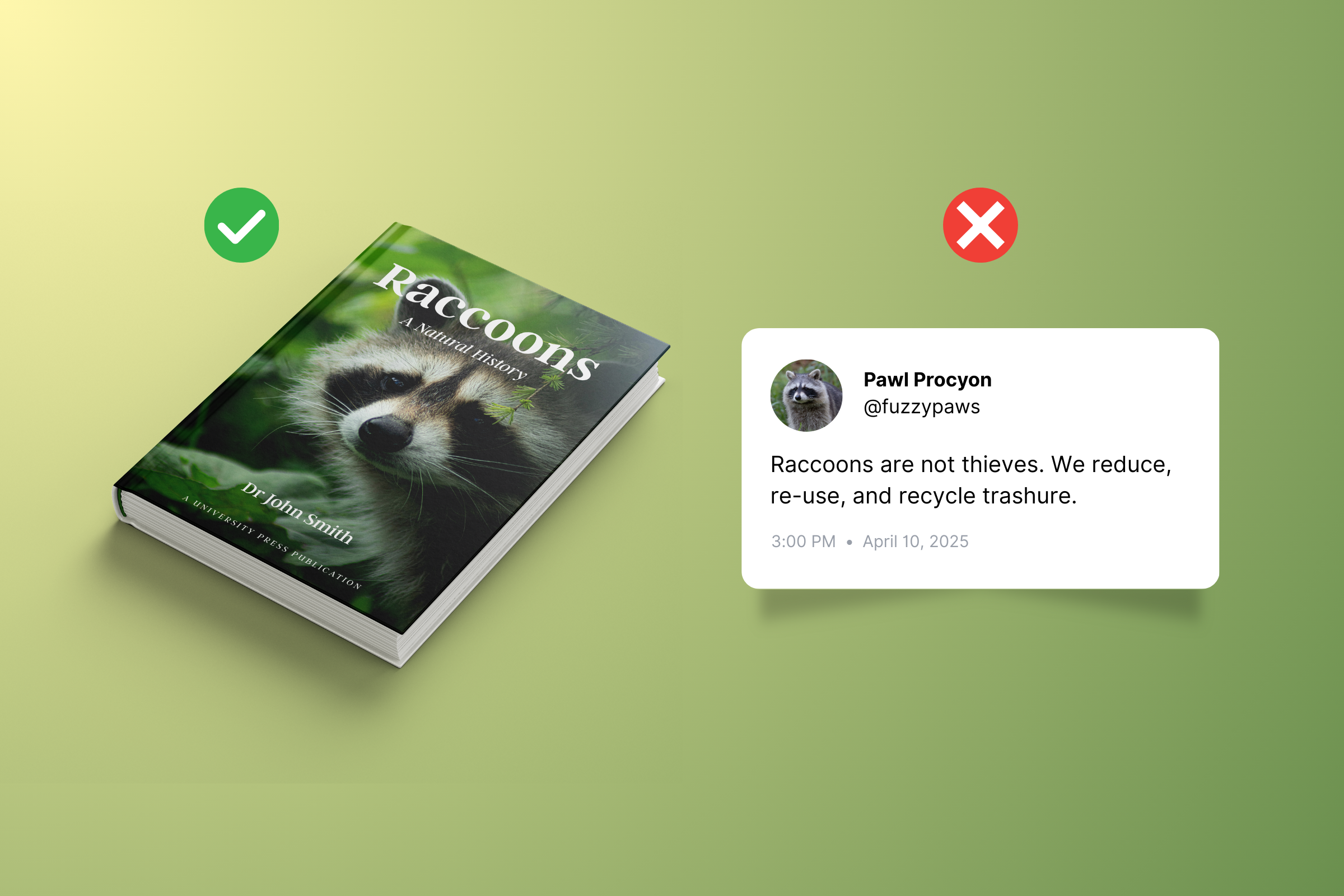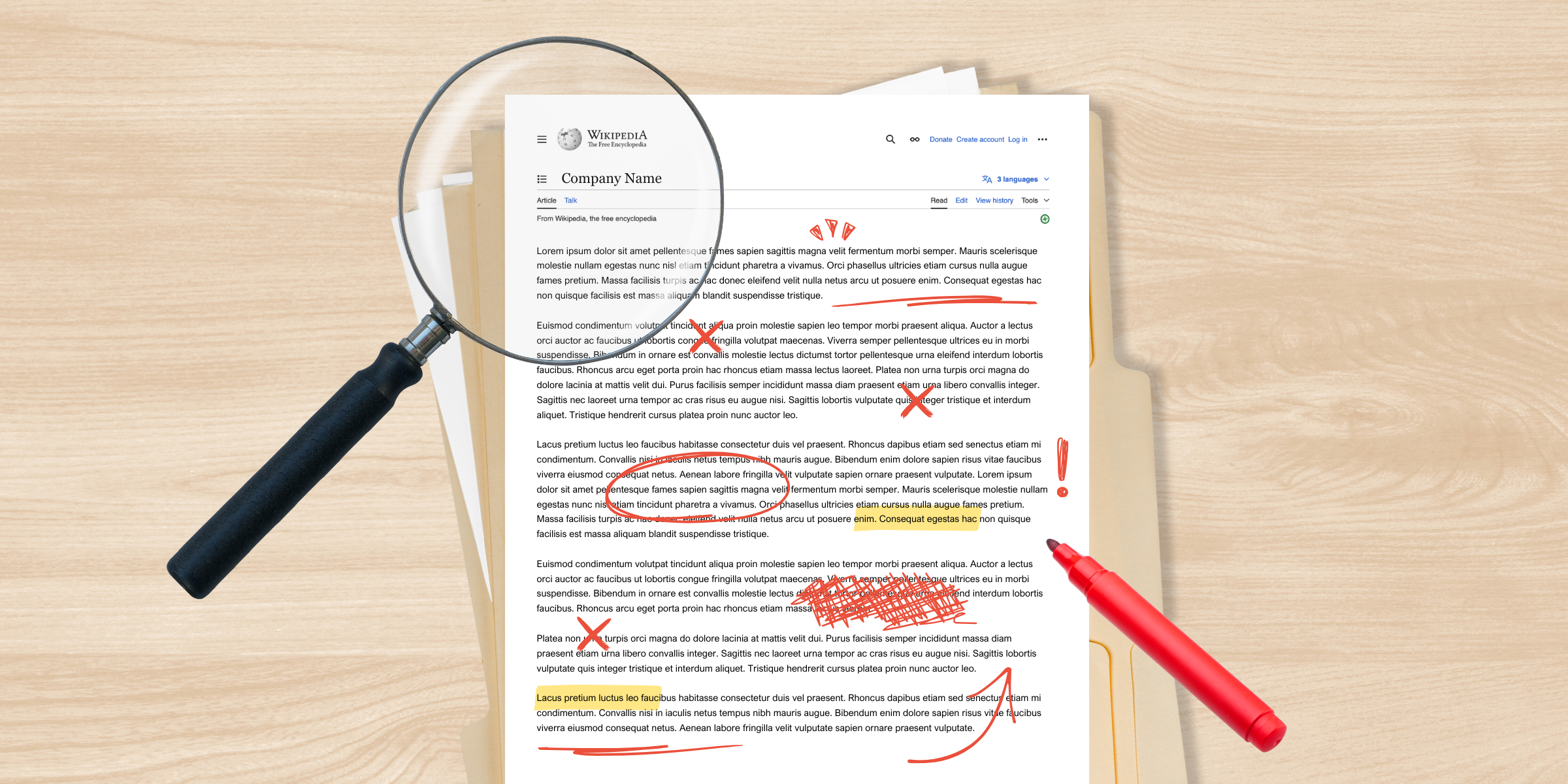Wikipedia is important to your brand. So is knowing if the advice you're getting is good or bad.
Dear Entrepreneur, please be more careful with the Wikipedia advice you give out
Here at Beutler Ink we find great joy in seeing someone with a conflict of interest (COI) successfully navigate Wikipedia's complex landscape of policies and guidelines, whether it's through a project with our Wikipedia team or just on their own. Recently, we came across an article published by Entrepreneur titled "Need a Business Wiki? Here are 5 Ways to Get Your Brand on Wikipedia", and naturally we had to see what sort of advice it contained.
To be frank, the advice in the article is not good. In fact, it's a far better recipe for getting yourself in hot water with the Wikipedia editing community. And that troubles us, because every time someone breaks the rules on Wikipedia, it makes it harder for the folks who work hard to follow them. In this case, the advice given simply doesn't follow Wikipedia's policies and guidelines.
No one gets “control” of their Wikipedia page
In the very first paragraph, we find our misunderstanding of how Wikipedia works with this assessment of why it's important to have a presence on Wikipedia:
…creating a Wikipedia page can also give you control over the narrative represented to the viewer. Wikipedia can also direct people to external links, which can increase traffic for your business.
These assertions are misleading. No one ever gets "control" of their Wikipedia page; all Wikipedia entries are collaborative efforts, and no single person or entity can be assured of the "final word". If you have a COI, you'll be far more successful by showing you're there to support the existing process and improve the encyclopedia than if you try to control what an article says. As far as external links are concerned, yes, if you have an official website, the link will be included at the bottom of the page. However, that's often as far as it goes. Wikipedia editors are very cautious about using commercial links, and like most things there's a set of rules for how they can be used. There are some exceptions, but in a nutshell, it's meant to be sparingly.
What you can have on your Wikipedia user page
Entrepreneur's advice doesn't get better. The author recommends, "Make a Wikipedia account and generate credibility", and by itself that's a good idea. But their methods are a bad idea. They suggest that once you create an account, "You can use this profile to highlight information on your brand and share a couple of photos."
Nope, sorry, you can't do this. Again, Wikipedia has rules for just about everything, including what you can have on your user page. Promotional material is specifically not allowed anywhere on Wikipedia, even your user page. All you should have there is a short declaration of your COI, and maybe a few fun facts about yourself like if you're interested in birdwatching or baking.
Generating credibility on Wikipedia
The article goes on to offer the following advice about generating credibility before trying to create an article about your company:
An excellent way to do this is to look for pages related to your industry and add brief, citable additions that relate to your company. For instance, if you're in the lumber industry, link to a newspaper article or press release about your business on pages that make sense.
This is wrong. Please do not do this. What the author is describing is called spam and it will get you blacklisted by the community. Adding information about yourself directly will be seen as promotional, and suggest to editors that you are not there to build an encyclopedia. Instead, you can generate credibility by 1) properly disclosing your COI and 2) making reasonable edit requests on article Talk pages using reliable sources to support changes related to your industry.
Reliable sources on Wikipedia
On the subject of reliable sources, press releases are rarely accepted. Not only should you not try to sneak them into articles, even when you're following the rules you shouldn't try to use them. That comes up next with the instruction to gather sources, which says to compile:
...essentially anything that can be used as a citation, such as something you might have in a research paper. Things like newspaper articles that prominently feature your business, press releases, and other third-party sources are invaluable to ensuring that your citations succeed.
You'll want to be more careful than just gathering anything to use as a citation. They're right that newspaper articles are important, and that you need third-party sources. Again, press releases are a no go (and a press release from your company is not "third-party"). Same for blogs, op-eds, interviews, paid media, and much more. In reality, there are far fewer sources that qualify than do not and that's by design. It's critically important to understand what editors will accept so you don't overwhelm the community trying to add sources that aren't considered reliable. What Wikipedia editors want to see is independent reporting buttressed with fact-checking.
READ MORE: Why Can't I Use Press Releases From My Company to Update Our Wikipedia Page?
Drafting and submitting an article on Wikipedia
The rest of the Entrepreneur article is concerned with drafting and submitting an article for review on Wikipedia. It's scant on details and missing some important info. For instance, Wikipedia has its own Manual of Style you'll need to follow. There is an Article Wizard, but before submitting an article you'll want to take a look at the general notability guideline to get a feel for whether the topic even qualifies for a Wikipedia article. And the author never acknowledges that "conflict of interest" is a thing worth understanding, let alone informing your approach. But hey, they got one thing right, which is that getting an article reviewed can take months.
There's a lot more to getting an article placed that we can't cover here. For a more realistic take, see What You Need to Know to Get a Wikipedia Page Published at Content Marketing Institute, by Beutler Ink president William Beutler. And if you're interested in learning about how Wikipedia works, we have plenty more good advice here on our website.
Conclusion
Wikipedia is a worthwhile investment and, should your brand qualify for an article, you want to make sure it has an accurate, neutral, and up-to-date presence on the site. After all, it's one of the world's most visited websites and often the first result on Google. It's also a complex platform that takes time and expertise to master. Luckily, we're here to help and our dedicated team of Wikipedia experts would be glad to meet you and discuss your goals.
Sign up to receive notice when we post new Wikipedia insights.




